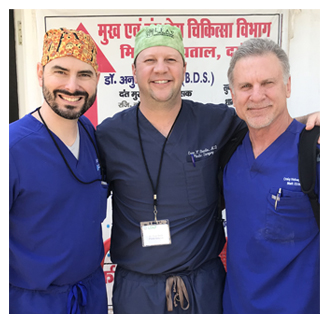Being physically, logistically and mentally prepared for surgery will greatly ease the entire surgical process. Let’s examine how you can ensure that you have done this.
Physical Preparation
This is a task that you will do with the help of Dr. Hobar and his staff. Once you schedule your surgery, Dr. Hobar’s staff will contact you to discuss any preoperative work that you might need to do. This could include lab work, an EKG, a mammogram or preoperative clearance from another physician such as your internist, a cardiologist or other physician specialist. These preoperative measures are in place to make sure that you are healthy and ready for surgery. Dr. Hobar and his staff take great pride in providing excellent patient care and the most critical component of this care is your safety and well being.Independently, make sure that you are generally healthy and well rested before your surgery. Make an effort to eat well and get plenty of sleep during this time. Carefully read your surgical packet and review the list of medications and supplements that you must avoid.
If you choose to follow our supplement regimen, purchase these ahead of time and begin taking them before your surgery. Ideally, Dr. Hobar likes you to take them for a few weeks before surgery as well as a few weeks after surgery.
If you smoke or have any exposure to nicotine, please disclose this information to Dr. Hobar and his staff. Nicotine exposure is the primary cause for delayed healing. Even a small amount of nicotine can be detrimental to the healing process.
Logistical Preparation
Depending on the type of surgery you are having, this can be relatively straightforward. One element to being logistically prepared means that you have filled all of your prescriptions and purchased all supplies that you need to care for your incisions and skin during the healing process. Organize all of these items and have an understanding of what their purpose is. Your surgical packet will contain a list of all the supplies you need as well as instructions on how to use them. Make arrangements to allow yourself to recover in a reasonable fashion.
When you go home, make sure that you have delegated any demanding responsibilities to someone else. Protect your time and your energy. You will recover more quickly if you don’t overextend yourself those first few days.






